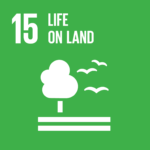For Indonesia, which is the world’s largest producer of palm oil, the expansion of RSPO certification among smallholders is a promising step towards balancing economic growth with environmental responsibility.
Indonesia’s palm oil industry, often scrutinized for its environmental impact, is seeing a promising shift as the number of independent smallholder farmers with Roundtable on Sustainable Palm Oil (RSPO) certification has surged over the past decade. This significant increase reflects the growing commitment among smallholders to sustainable practices, aiming to improve livelihoods while minimizing environmental harm.
RELEVANT SUSTAINABLE GOALS




A Decade of Growth in Sustainable Certification
The number of certified independent smallholders in Indonesia has grown dramatically from just 810 in 2015 to 34,403 in 2024—an approximate 40-fold increase. This rise is notable given the challenges faced by independent smallholders, who operate without formal ties to specific mills and typically manage plots of up to 50 hectares per farmer. RSPO certification, which is recognized globally as a mark of sustainable palm oil production, requires adherence to rigorous standards.
These standards include prohibiting child labor, implementing environmentally friendly plantation management practices, and undergoing annual audits and verification processes. The certification serves as a badge of credibility and a testament to sustainable operations, offering smallholders a pathway to access international markets and improve their agricultural yields.
The Impact of RSPO Certification on Smallholders
RSPO certification has provided independent smallholders with numerous advantages beyond just environmental stewardship. According to RSPO, certified farmers experience enhanced harvests, greater exposure to international markets, improved livelihoods, and reduced risk of land conversion. This certification is more than just a label; it represents a commitment to sustainable agriculture that resonates with global consumers increasingly demanding responsible sourcing.
“Certification is a symbol of credibility and proof of sustainable practices in operations,” notes the RSPO website, highlighting the importance of these standards for market access and farmer empowerment.
Pathway to Certification: Standards and Verification
Achieving RSPO certification is not a straightforward process. Independent smallholders must comply with a set of sustainability standards, which are designed to protect both workers and the environment. These include strict prohibitions on child labor, maintaining biodiversity, and adopting practices that reduce environmental footprints, such as minimizing pesticide use and preventing deforestation.
After implementing these standards, farmers undergo a thorough verification process, followed by annual audits to ensure continued compliance. This rigorous approach ensures that RSPO-certified palm oil meets the highest standards of sustainability, providing reassurance to buyers and consumers.
Challenges and Opportunities Ahead
While the growth in RSPO certification among independent smallholders is a positive development, challenges remain. Many smallholders still struggle with the costs and complexities of meeting certification standards. Additionally, there is a need for continued support and education to help more farmers transition to sustainable practices.
However, the rapid increase in certified farmers over the last decade demonstrates that with the right incentives and support, smallholders can make significant strides towards sustainability. This shift not only benefits the farmers themselves but also contributes to broader environmental and economic goals, aligning with global efforts to promote sustainable agriculture.
As the demand for sustainably produced palm oil continues to grow, Indonesia’s independent smallholders are poised to play a critical role in meeting that demand. The dramatic rise in RSPO-certified farmers is a testament to the progress that can be made when farmers are empowered with the tools and knowledge to adopt sustainable practices.
You may also be interested in :
Agroecology: A Sustainable Path To Revitalising Indonesia’s Food Systems





